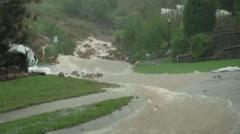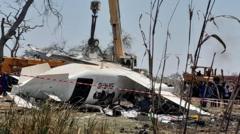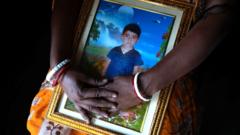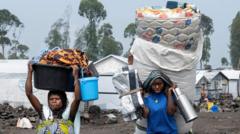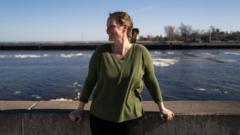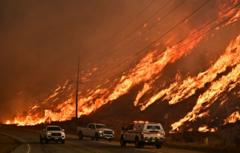In Unity State, South Sudan, residents face severe water scarcity, as climate-induced floods mix with oil pollution, resulting in unsafe drinking conditions. Local herders report health issues and genetic deformities in livestock and humans linked to contaminated water, prompting urgent calls for action and accountability regarding environmental safety.
"Dying of Thirst: The Toxic Aftermath of Climate Floods and Oil Pollution in South Sudan"
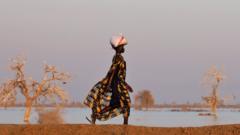
"Dying of Thirst: The Toxic Aftermath of Climate Floods and Oil Pollution in South Sudan"
As unprecedented flooding in South Sudan worsens due to climate change, local communities grapple with the consequences of oil pollution contaminating their water supply and impacting their health.
In South Sudan's Unity State, herders are risking their lives as they scoop murky water from polluted ponds amidst the carnage of climate-driven floods and oil contamination. The area has been devastated by years of unprecedented flooding, a phenomenon worsened by climate change, leading to a dire water crisis for its inhabitants.
"We know it's bad water, but we don't have anywhere else, we're dying of thirst," states Nyatabah, a local cowherd, while recalling the dirty water riddled with harmful chemicals from oil fields in the region. Herders have become increasingly aware of the dangers posed by drinking from these toxic sources but have no alternative. Flooding is exacerbating the situation, washing pollutants from mismanaged oil facilities into their scarce water supply.
David Bojo Leju, a former oil engineer, describes the floods as a "disaster" where pollution from oil extraction has become a "silent killer." He worked for the Greater Pioneer Operating Company, where he witnessed firsthand the frequent spills and leaks contaminating the surrounding environment. Bojo Leju recounts the overwhelming presence of produced water—water that is released during oil extraction—which often contains hazardous materials and is insufficiently treated before being reinjected into the ecosystem.
Though Unity State has a history of seasonal flooding, the intensity of the rains starting in 2019 brought unprecedented destruction, leaving up to two-thirds of the region submerged. Currently, about 40% of the state remains underwater, as rising waters threaten the health and livelihoods of those living in flood-prone areas.
As families begin to forage for food and clean water, they face severe health risks from drinking what little water they can find. Reports of congenital disabilities in newborns and cattle losses exceeding 100,000 highlight the toll of this dual crisis on the local population. Health professionals connect these issues directly to the combined perils of extreme flooding and pollution, alleging that the contaminated water sources may play a significant role in these tragic outcomes.
Mary Ayen Majok, a senior politician, emphasizes the urgent need for an environmental audit in light of the widespread pollution, yet the government's previous efforts remain unfulfilled. With accountability lacking and public health dangers rising, the people of Unity State find their lives hanging in a precarious balance, hoping against hope for a return to stability amidst the devastation of their environment.
Despite the dire circumstances, locals express resilience, yearning to return to their agricultural roots. Young children engage in imaginative play beside floodwaters, while others gather water lily roots—symbolizing the longings for a future where they can once again thrive as farmers and ranchers.
As awareness of these interconnected crises grows, calls for systemic changes and comprehensive environmental responsibility are paramount if the people of South Sudan are to survive and rebuild their lives amid the shadows of climate change and pollution.


